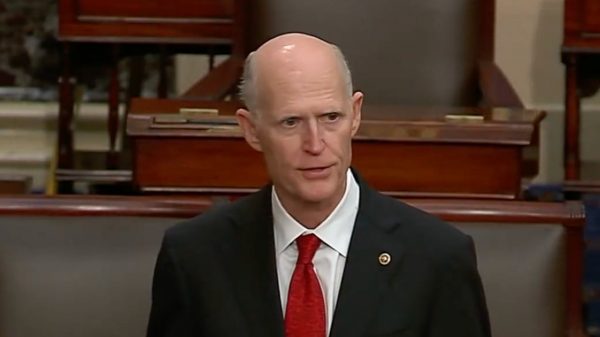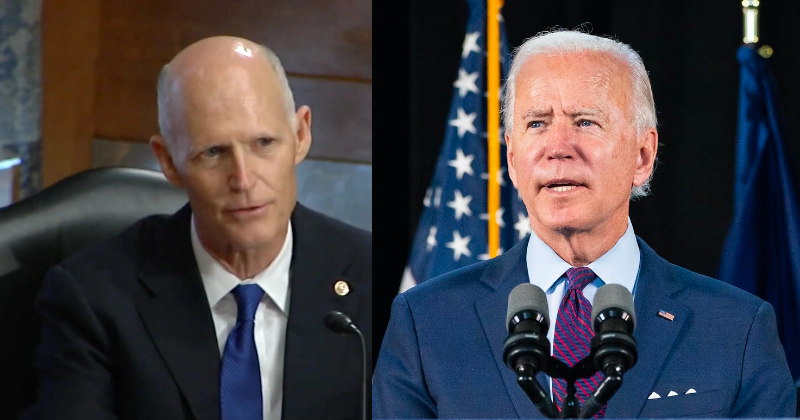On Tuesday, U.S. Sen. Rick Scott, R-Fla., paired up with U.S. Sen. Chris Van Hollen, D-Md., to write the National Academies of Science, Engineering, and Medicine (NASEM) asking them to issue a report on its recent workshop examining the role of the National Institutes of Health (NIH) in the development of new drug treatments and the impact on patient access and pricing and issue a report. The two senators have introduced the “We PAID Act” which would ensure that the prices of drugs developed using federally funded research are set at reasonable levels. The legislation has been endorsed by AARP.
As Congress considers the “We PAID Act,” Van Hollen and Scott asked NASEM to publish an initial report about the factors the impact this intersection of research and patient access.
The full text of the letter is below:
Dear Drs. McNutt and Dzau,
Thank you for convening the recent National Academies of Science, Engineering, and Medicine (NASEM) workshop “The Role of NIH in Drug Development Innovation and its Impact on Patient Access.” We are writing to request a report from NASEM on this important workshop.
We know that federal research dollars – particularly through the National Institutes of Health – play a major role in funding the basic science research that leads to the development of prescription drugs. This taxpayer-funded research plays a critical role in the development of prescription drugs and yet, those same taxpayers struggle to afford these drugs when they come to market as pharmaceutical companies set unaffordable prices and gouge patients with unjustifiable price hikes year after year.
You may be aware that we introduced the We Protect American Investment in Drugs (We PAID) Act, S. 2387, bipartisan legislation that will ensure that the prices of drugs developed using federally funded research are set at reasonable levels. We believe that NASEM has significant expertise to offer in this area and should play an important role in the conversations around federal investment in basic science and drug development and how we can ensure that treatments developed with taxpayer funds are accessible and affordable to all patients. In fact, the We PAID Act directs the Secretary of Health and Human Services to enter into a contract with NASEM to complete a study on how to determine the reasonableness of a drug’s price, taking into account a number of factors, including federal investment in the development of the drug. The results of this study will be used by an independent entity set up under the bill to establish a process for determining a reasonable price for drugs developed with taxpayer funds.
We appreciate NASEM’s focus on this issue with its recent workshop. We believe a report from NASEM highlighting the issues raised will be helpful as Congress evaluates policies on drug prices and accessibility. Specifically, we are requesting that the report address the below questions:
1. In what ways does NIH contribute to drug development?
2. How extensive are these contributions and how have they changed over time?
3. What methods have been used to track NIH’s contributions to drug development? What are the strengths and weaknesses of these methods? What steps can be taken to better track NIH’s contributions?
4. How is NIH working to make drug development more efficient? How successful have these efforts been? What additional steps can NIH take? What evidence exists that lower development costs will lead to lower drug prices?
5. What are the biggest challenges facing technology transfer from NIH and academic institutions to industry? What are possible solutions to these challenges?
6. What policies can the federal government adopt to ensure affordable access to prescription drugs benefitting from federal investments? What steps are needed for the implementation of these policies? What are the strengths and weaknesses of these policies? What evidence exists on the impact these policies may have on innovation?
7. What lessons can be drawn from the NIH’s experience with a reasonable pricing condition?
Thank you in advance for your attention to this matter. We look forward to hearing from you.













